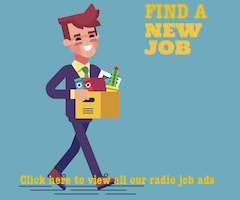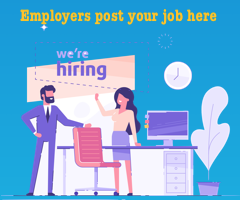Comment from Peter Saxon
Ever since primary school, when I first spoke into a microphone to address an assembly of kids and teachers, I understood the awesome power that that bulbous little joystick bestowed upon the mouth that controlled it.
On that first occasion, I’d been tasked with pledging allegiance to the Queen – something I’d seen dozens of kids do before me. Descending alphabetically from Abernathy through Billington and Lipschitz, today it was Saxon’s turn.
As I nervously mounted the podium, and the headmaster lowered the mic to my height, I felt a sudden elevation in stature. For once the whole school’s attention was focussed on me. They were quiet and attentive as if waiting for guidance… from me. Wow!
That first gig went well. I got a good review from the teachers and the headmaster who hinted that I might, one day, get my own spot presenting the day’s specials at the school tuckshop.
For the first time in my life, I had control of an actual crowd of, maybe, 90. I was convinced it was bigger than the crowd for Lipschitz, whom I hated. He’d given his pledge mid-winter when a lot of kids were home with the flu, while mine was in spring. By nine years of age, even though I could not yet spell it, or known its meaning if I could, I’d already developed a delicious sense of schadenfreude.
My new-found confidence and rapidly developing ego came crashing back to earth when, a few days later, I found myself alone in the same room with the microphone that was now patched into to the school’s P.A. system. Hopelessly attracted, I pushed down on its “talk” button and announced to the whole school, “You give me the shits, Lipschitz!”
This performance made me an instant play-lunch legend with the other kids but not so much with the headmaster and the teaching staff. Or, for that matter, Lipschitz.
Retribution was both swift and painful. With the aid of a length of bamboo applied half a dozen times to my buttocks, I learnt a valuable lesson that day in regard to the responsibility one bears when speaking to the masses through a loaded microphone.
In my defence, I cried, “But sir, I was only saying what everyone was thinking.” Oddly, that argument didn’t go down nearly as well then as, sadly, it does in the adult world of radio and politics today.
Although it should be patently obvious, even to the most libertarian among us, why one shouldn’t “yell fire in a crowded cinema,” the old maxim serves a more profound truth: that there are limits to free speech.
What we in western societies refer to as “freedom of speech” merely defines the difference between democracies such as ours and authoritarian regimes where the public are forbidden from criticising those that are busy doing all the authorising. Beyond that particular “freedom” that we in the west enjoy, there are plenty of limitations to “speech.”
You can’t risk saying things that can adversely affect other people physically, financially or emotionally – unless you can prove what you say is true.
If you balk at “emotional” hurt being taboo, ask yourself how you’d feel if a bunch of trolls piled onto your daughter or young brother’s facebook page and drove them to suicide?
So let us not get all teary-eyed about some mythical notion of our inalienable right to free speech or to do as we please in a “free society,” no matter who gets hurt in the process. We will have no society if we, as individuals and, as corporations, don’t take responsibility for our role in it.
Last week YouTube took responsibility for its role as a global media platform by suspending Sky News Australia’s account for seven days.
Now, I must say, I’m not entirely comfortable with big corporations becoming the arbiters of what speech is and isn’t permissible. But given that the social giants have for many years been roundly criticised, by me included, for their seeming indifference to hate speech, revenge porn and the posting of lies that can ruin a career or a business without redress, it is better that they start censoring at least some of the more egregious posts than keeping an open slather.
And given how far governments and the law lag behind all matters to do with internet, social media and AI, and in the absence of proper legislation, or perhaps a set of codes administered by some independent body, it’s better that the social giants step up and take some responsibility for what appears on their own platforms than wait for authorities to catch up.
In the week before the YouTube announcement, The Daily Telegraph, dumped Alan Jones’ column from their publication.
No doubt YouTube and The Tele will endure some backlash from subscribers for their decision – assault on free speech etc, etc. YouTube will also forgo revenue, as will Sky, for the week’s suspension.
Neither YouTube nor the Daily Telegraph can be accused of being some left wing “woke” organisation and part of the forces of evil that the vigilant warriors at Sky have vowed to protect their conservative audience from. So what made YouTube and The Tele take the decisions they did?
The Daily Telegraph, hitherto an enthusiastic Jones supporter said through their editor Ben English, that he didn’t “resonate” with the publication’s readers – which I find hard to believe unless he meant Jones no longer resonated specifically on the subject of COVID-19.
In a statement obtained by the Guardian, YouTube said, “We have clear and established COVID-19 medical misinformation policies…to prevent the spread of COVID-19 misinformation that could cause real-world harm.” I can’t argue with that.
Cynics might say that the Tele and YouTube did some serious research and found that for the vast majority of their audiences, the Covid denying, anti-vaccination arguments, didn’t wash and therefore reasoned that by their actions they could gain more users than they lost. But I would like to think that somehow they sat heavily on their moral compasses and felt the needle pointed to where it hurts, and that spurred them into action, so to speak.
Either way, it’s about bloody time.
It’s about bloody time that the media which has had to wear false accusations of “fake news” and has been labelled “enemy of the people” pushed back and called out those within its midst that those labels actually fit.
To borrow from Alan Jones, “I’ll have more to say on this later.”

Peter Saxon
Subscribe to the radioinfo podcast on these platforms: Acast, Apple iTunes Podcasts, Podtail, Spotify, Google Podcasts, TuneIn, or wherever you get your podcasts.




Freedom of speech is a misunderstood concept. We choose not to say a lot of things in some settings because we might believe it's not in our best interests to say what we think to some people. But strictly speaking, freedom of speech is only the legal protection from prosecution for what we say.
The other point to remember is that YouTube (and Facebook, Twitter, etc) is a privately-owned platform. No one has any right to be there unless the owners agree.
... so Peter, did you publicly applaud the ACMA when, after doing "some serious research", it called out the ABC's 4 Corners for breaching its own code of impartiality? don't remember reading that comment ...
Generally speaking yes that's true Dan but it does get a little more complicated than that. Antidiscrimination protections still apply, and they vary from jurisdiction to jurisdiction depending upon the country in which the users are accessing and contributing to the platform.
There's a song that makes me think of free speech.
I think there's something in it we can all get something out of.
Charlie Daniels Band - The Devil Went Down to Georgia.
While I agree almost wholly with your arguments, Peter, I might just comment on your use of the classic legal maxim on the limits on freedom of speech. In Schenck v. United States, Justice Oliver Wendell Holmes said: “The most stringent protection of free speech would not protect a man in falsely shouting fire in a theatre and causing a panic.” The moral (and legal) distinction is clear. You CAN shout fire in a theatre if there is a fire in order to avert harm to other people. But if there is no fire and your shout causes serious harm to others (i.e. panic), that is not morally right or legally protected. It seems a very clear matter to me and I cannot after 50 years as a journalist understand why some people in the media still do not get it.